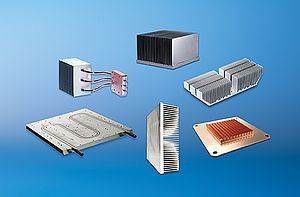During the production process, the glass used for windshields is subjected to temperatures as high as 400 °C in the gravity bending furnace. Bending is a central process in the manufacture of windshields that requires absolute precision. Even slight deviations in the geometry can impair the function and cause premature wear of wiper blades. Furthermore, sensor plates, seals or frames integrated in the windshield can dislodge or leak.
Inspections should be scheduled at start of production process
To prevent such problems and to ensure compliance with the manufacturer’s exact specifications, manual spot checks are conducted to control the quality during production, in addition to more in-depth inspections at the end of the production process. By that time, however, the defective windshields have already gone through the entire production cycle, resulting in unnecessary costs. That is why nokra Optische Prüftechnik und Automation GmbH developed a laser-based glass measuring system that is placed directly downstream from the bending furnace for automatic contactless inspection of the glass panes early on in the production process – without the necessity of removing the panes from the line. The alpha.glass measurement system immediately detects any quality deficiencies so the defective components can be removed from the production process. Fast and automatic measurement by the system also allows personnel to make adjustments to the bending furnace in the event of frequent deficiencies, in order to prevent further rejects.
Laser triangulation enables fast in-line measurement
In addition to the glass measurement system, nokra also produces systems for measuring the clearance, thickness, profile and shape of belts, metal sheets, forged parts or mounted components, such as camshafts or cross members. The company’s customers include auto manufacturers, plant engineering companies and glass manufacturers, as well as steel and aluminum production plants. “Automatic feedback of the measurements to the production process allows our customers to greatly increase their productivity,” says Managing Director Günter Lauven.
All measuring systems are based on the principle of laser triangulation, which nokra has been using since 1991 for the in-line inspection of geometric dimensions in industrial applications. The process allows fast, precise and contactless measurement of the distance of an object from a reference plane.
Sensors must be temperature controlled
Effective thermal management is necessary for the high-precision nokra sensors to function optimally. For one thing, the objects being measured – such as glass – are very hot. This heat has to be dissipated away from the sensors quickly, to prevent damage to the sensitive electronic components. For another, the systems operate at ambient temperatures of 50°C or higher.
In the search for a heat sink supplier, nokra engineer Michael Schreiber and his colleagues discovered CTX Thermal Solutions GmbH. The company, with headquarters in Nettetal, North-Rhine Westphalia, specializes in application- and project-specific cooling solutions. CTX offers a wide range of cooling solutions – including liquid-cooled heat sinks. These heat sinks are ideal for use in nokra measuring systems since they dissipate heat much more efficiently than fan systems. “CTX liquid-cooled heat sinks have a maximum height of 15 mm, which allows a close fit to our sensors,” explains Michael Schreiber. “This ensures fast and efficient heat dissipation away from the sensors, which is essential for the measuring systems to function optimally.”
Water is the ideal cooling medium
Nokra has been equipping their measuring systems with CTX liquid-cooled heat sinks since 2017. Depending on the ambient temperature, they have a dissipation capacity between 10 W and 100 W. The cooling circuits of liquid-cooled heat sinks can be filled with fluids such as water, oil, glycol or gases, depending on the required thermal dissipation power. The nokra engineers chose water as the cooling medium since it has the highest specific thermal capacity of all fluids and achieves the most effective dissipation of heat from the sensors. Furthermore, liquid-cooled heat sinks are very compact due to their small heat transfer surface area. This facilitates integration in the measuring and inspection systems, which have limited installation space.
Heat sinks are custom manufactured
CTX produces the liquid-cooled heat sinks to the exact specifications of nokra’s drawings for optimal compatibility with the sensors of the measuring systems. The cooling plates are either milled or friction stir welded, depending on the particular sensor and measuring device. Friction stir welding creates an absolutely tight connection between the top and bottom plates of the heat sink, which ensures optimal thermal conductivity. The production technology also offers maximum flexibility in the design of the cooling circuit, which is limited neither by minimal bending radiuses nor by pre-specified inner pipe diameters. Friction stir welding therefore makes it possible to custom tailor the cooling system to the particular application.
Fast delivery
However, nokra was convinced not only by the performance of CTX heat sinks. The cost-effective customization of the cooling systems even with relatively small quantities and short delivery times were likewise decisive. “CTX delivered a custom friction stir welded heat sink within six weeks – another supplier would have needed twice that long,” says nokra engineer Michael Schreiber.























